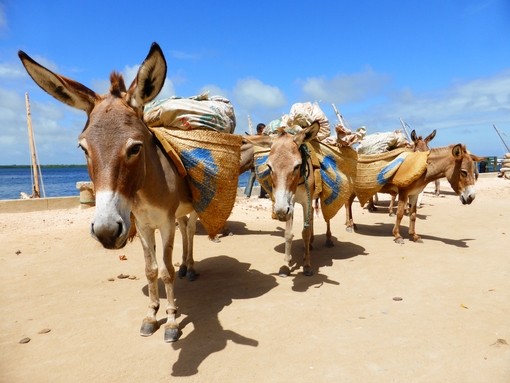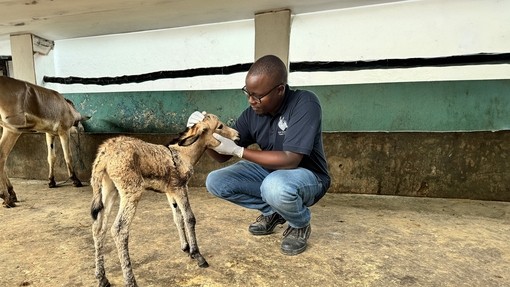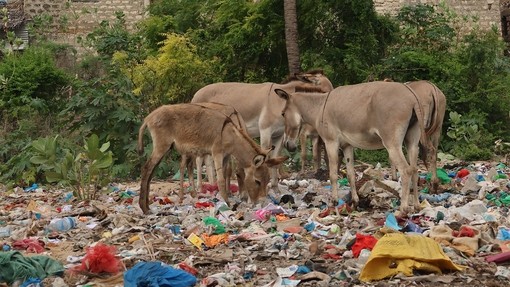
Our work in Lamu, Kenya
Donkey Sanctuary Kenya’s seafront clinic in the heart of the town has been helping donkeys and owners since it opened its doors over 30 years ago.
But beyond the hustle and bustle of Lamu town’s busy streets and alleys, Lamu county actually encompasses far more than just this one island. People rely on donkeys on many islands throughout the archipelago and in small coastal villages on the mainland which are only accessible by boat.
In the small island community of Manda Maweni, coral building blocks are chipped out from the ground in large quarries, and are loaded onto carts which one, two or three donkeys pull from the quarries to the port.
Men and donkeys all work phenomenally hard in hot, humid conditions and divide their work into morning and late afternoon shifts; the equatorial midday sun is just too fierce for this kind of work.
The team from Donkey Sanctuary Kenya have been working here for several years to improve the design of the carts and harness so that donkeys’ spines are protected, wounds are prevented and carts are well-balanced. The remoteness of such island communities makes working here a real challenge; it isn’t easy to get to them as often as we would like, especially in certain seasons.
On a recent visit we met Muiruri, the donkey group’s chairperson who has been trained by Donkey Sanctuary Kenya’s team in basic treatments and harnessing so that he can handle minor problems locally, ensuring that donkeys don’t suffer between visits. As there is no veterinary service on Manda island, the Donkey Sanctuary Kenya team is still the only option in emergencies and more serious cases.
The donkey users in Manda Maweni are a sincere and committed bunch. A lack of electricity and water in the village compounds their problems. All water needs to be brought to the island in jerry cans from Lamu island and it is then sold to communities at 25 shillings (about 17 pence) per can.
The group are planning to build a water trough to ensure their donkeys get the amount of water they want. Although welfare is improving here, there is a lot still to do. The group want more training and support in harnessing to make sure the donkeys are as comfortable as possible. In return, they have found a much cheaper way for Donkey Sanctuary Kenya’s team to make the voyage across in the future and are even willing to share this cost; this will mean more regular visits will be possible.
Arriving back at Lamu town’s jetty feeling very hot and sticky, we were greeted by a donkey and her foal who were wandering around the busy seafront.
Over three decades since Dr Elisabeth Svendsen first visited Lamu, thousands of donkeys have benefited from the team’s tireless work to improve welfare, not just of the very visible donkeys around the seafront clinic but also in the hidden quarries, farms and villages throughout the archipelago.
Your support makes stories like this possible
Share this page
Tags
- News



